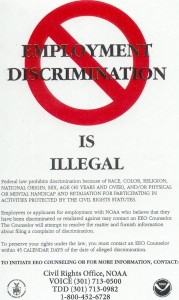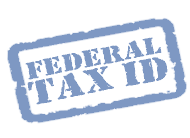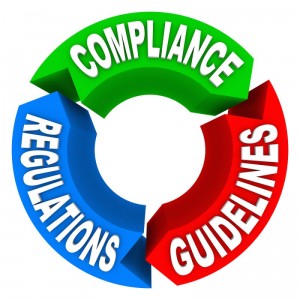The Age Discrimination in Employment Act of 1967
 We find that many employers are unaware of this act. It is, however a very important hiring regulation. According to the Equal Employment Opportunity Commission, “age discrimination involves treating someone (an applicant or employee) less favorably because of his age.”
We find that many employers are unaware of this act. It is, however a very important hiring regulation. According to the Equal Employment Opportunity Commission, “age discrimination involves treating someone (an applicant or employee) less favorably because of his age.”
The Age Discrimination in Employment Act (ADEA) only forbids age discrimination against people who are age 40 or older. It does not protect workers under the age of 40, although some states do have laws that protect younger workers from age discrimination.
Most frequently, we see cases of age discrimination in the elder set – companies who are hesitant to hire someone who is closer to retirement in favor of someone younger who can put in more time with the company. The law doesn’t require that one individual be below the age of 40, discrimination can also occur when the victim and the person who inflicted the discrimination are both over 40.
Age discrimination doesn’t simply apply to hiring, but all aspects of employment. As it relates to work situations: “The law forbids discrimination when it comes to any aspect of employment, including hiring, firing, pay, job assignments, promotions, layoff, training, fringe benefits, and any other term or condition of employment,” according to the Department of Labor.
Additionally, age driven harassment is protected under this law. Types of harassment can include remarks that can be deemed offensive regarding someone’s age or abilities as a result of their age. The Department of Labor notes that, “Although the law doesn’t prohibit simple teasing, offhand comments, or isolated incidents that aren’t very serious, harassment is illegal when it is so frequent or severe that it creates a hostile or offensive work environment or when it results in an adverse employment decision (such as the victim being fired or demoted).” This can be a slippery slope and it is incredibly important to ensure that your Employee Code of Conduct covers these topics.
Do you have an Employee Code of Conduct? If so, does it cover age specific topics like hiring and discrimination? These topics can be confusing and there is often quite a bit of gray area – that’s where you can benefit from a PEO. PEOs are experts in the area of defining employee codes of conduct as well as hiring regulations. Contact us today to set up a consult to find a PEO that can support your business.





